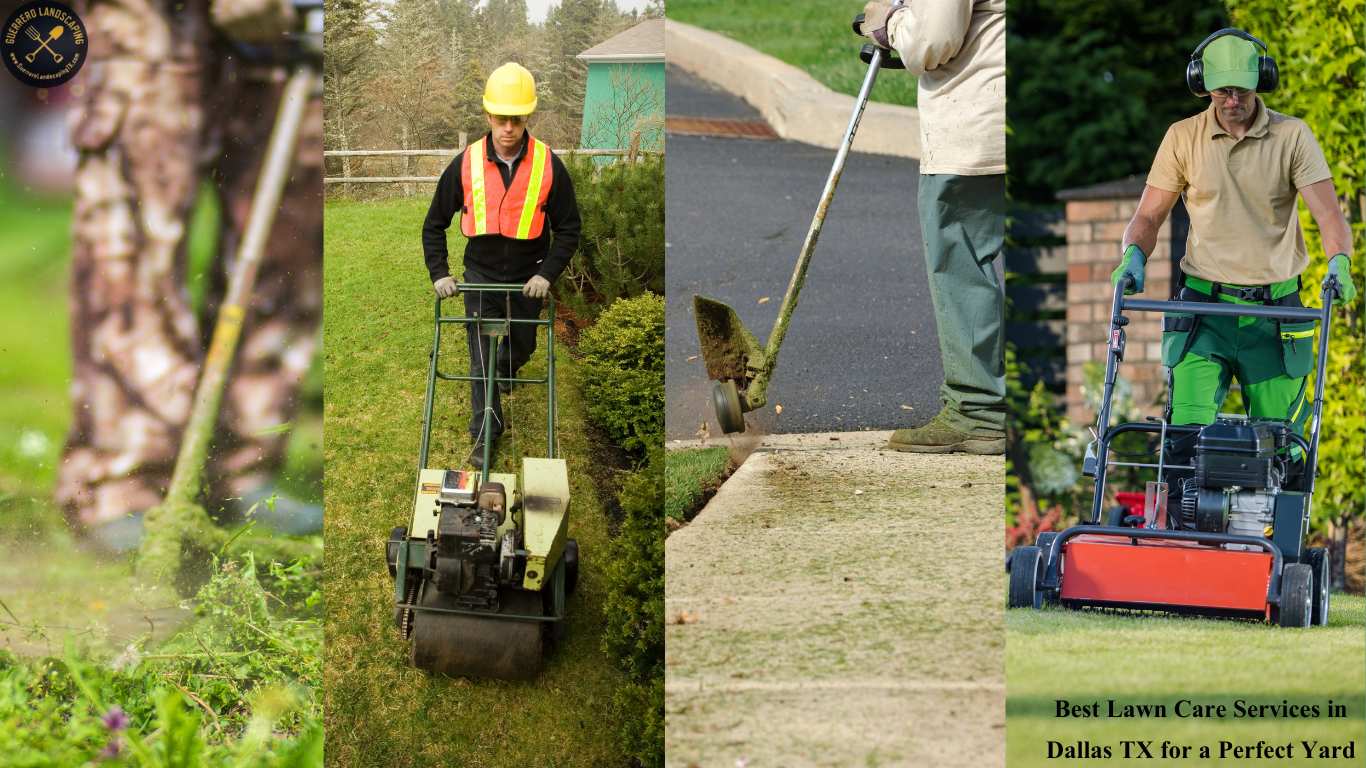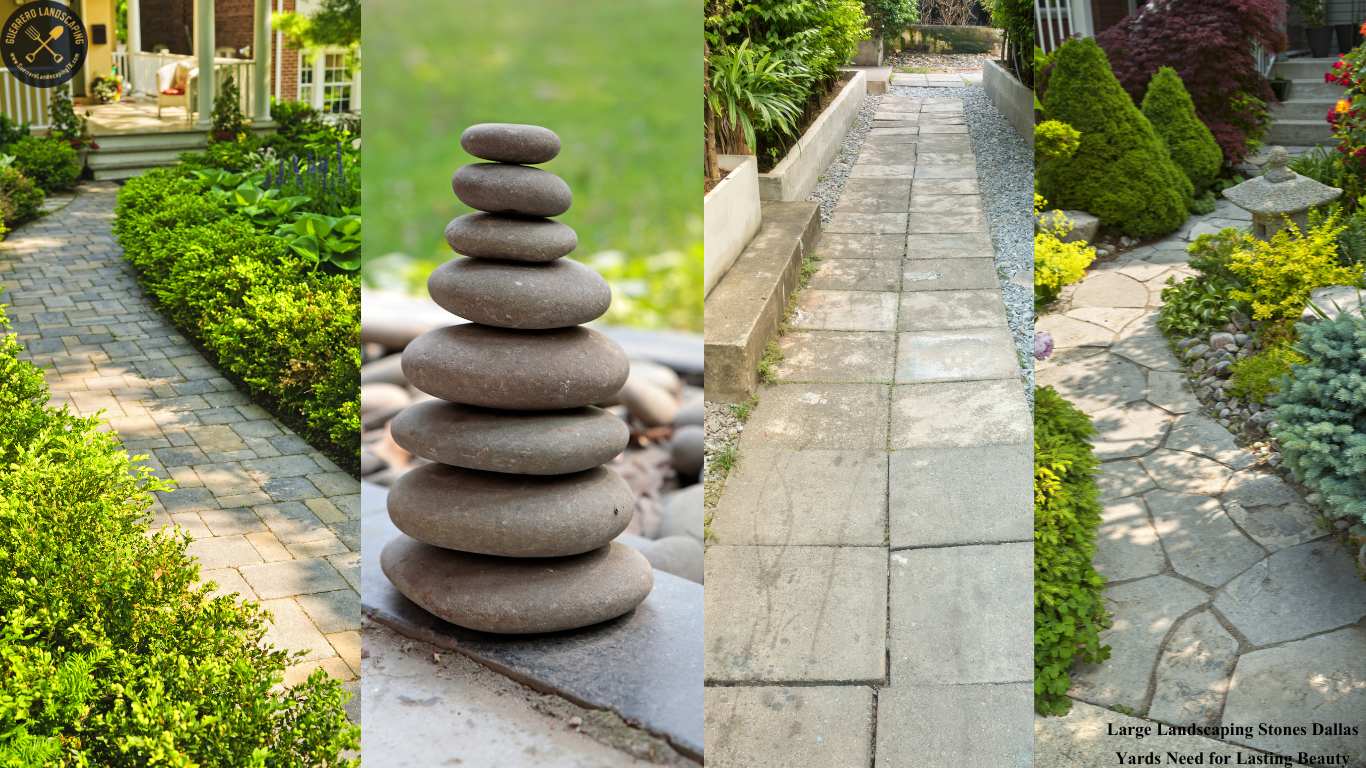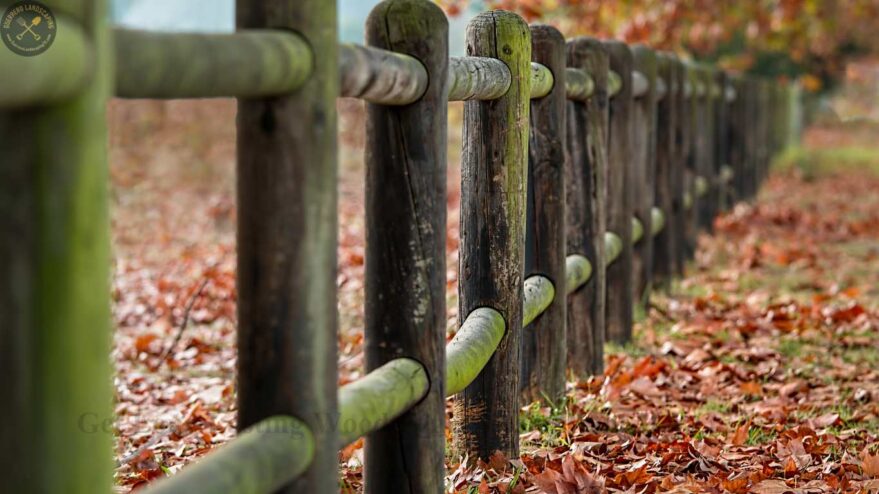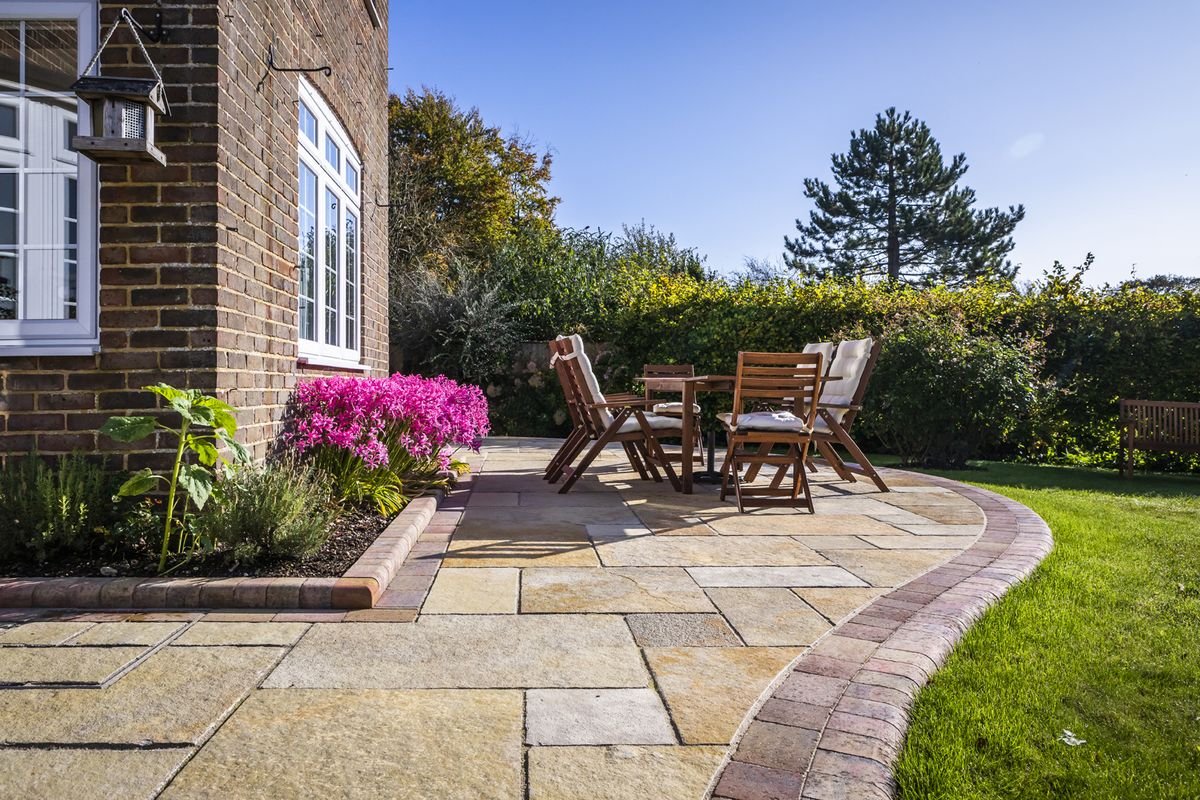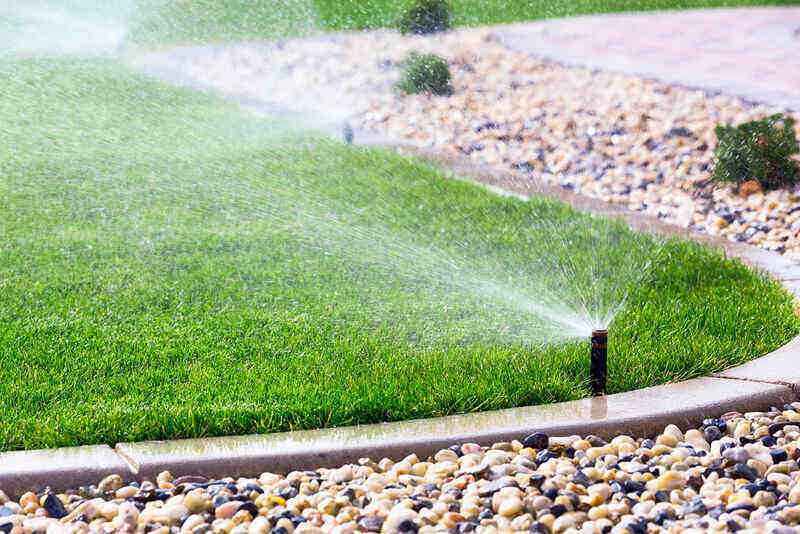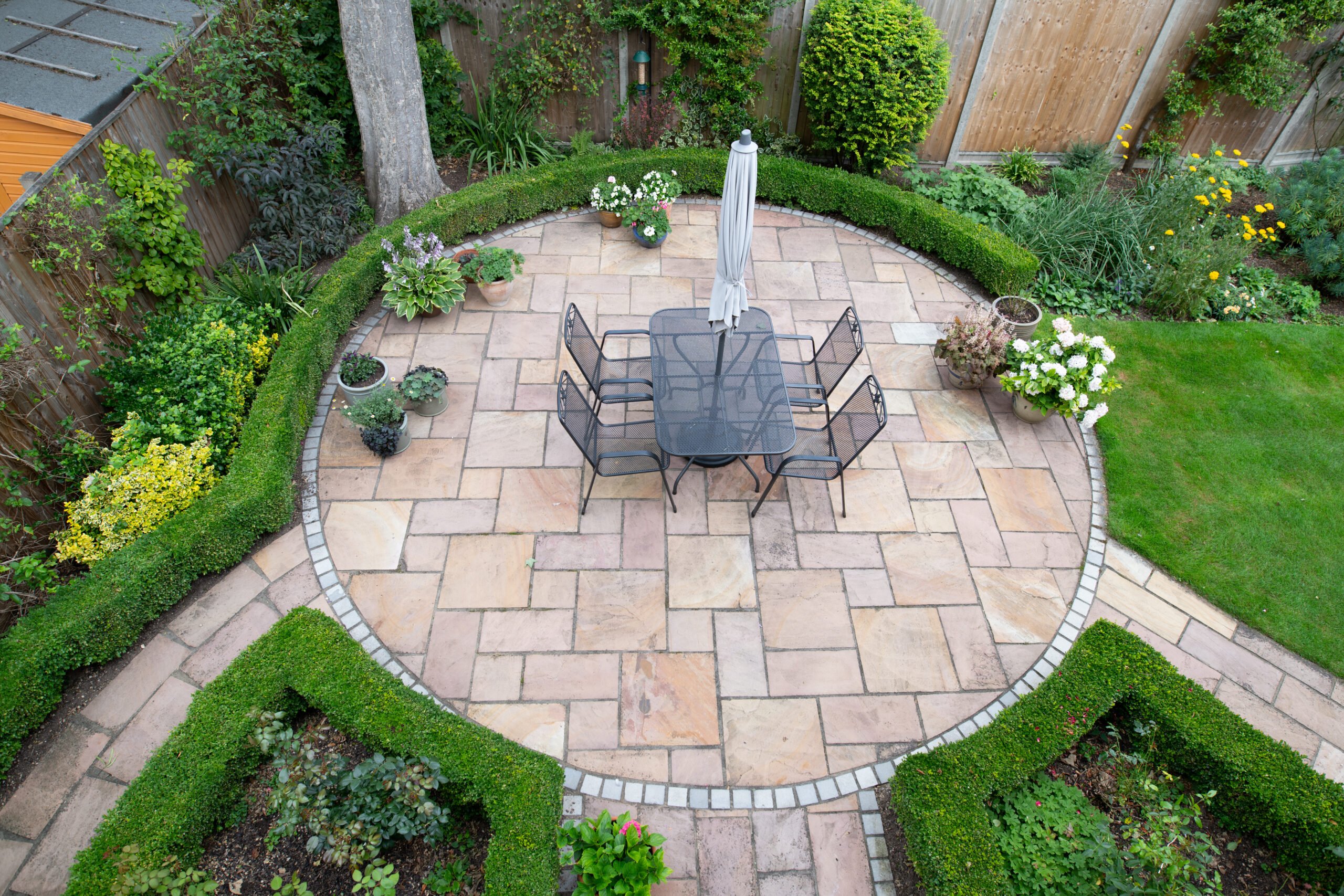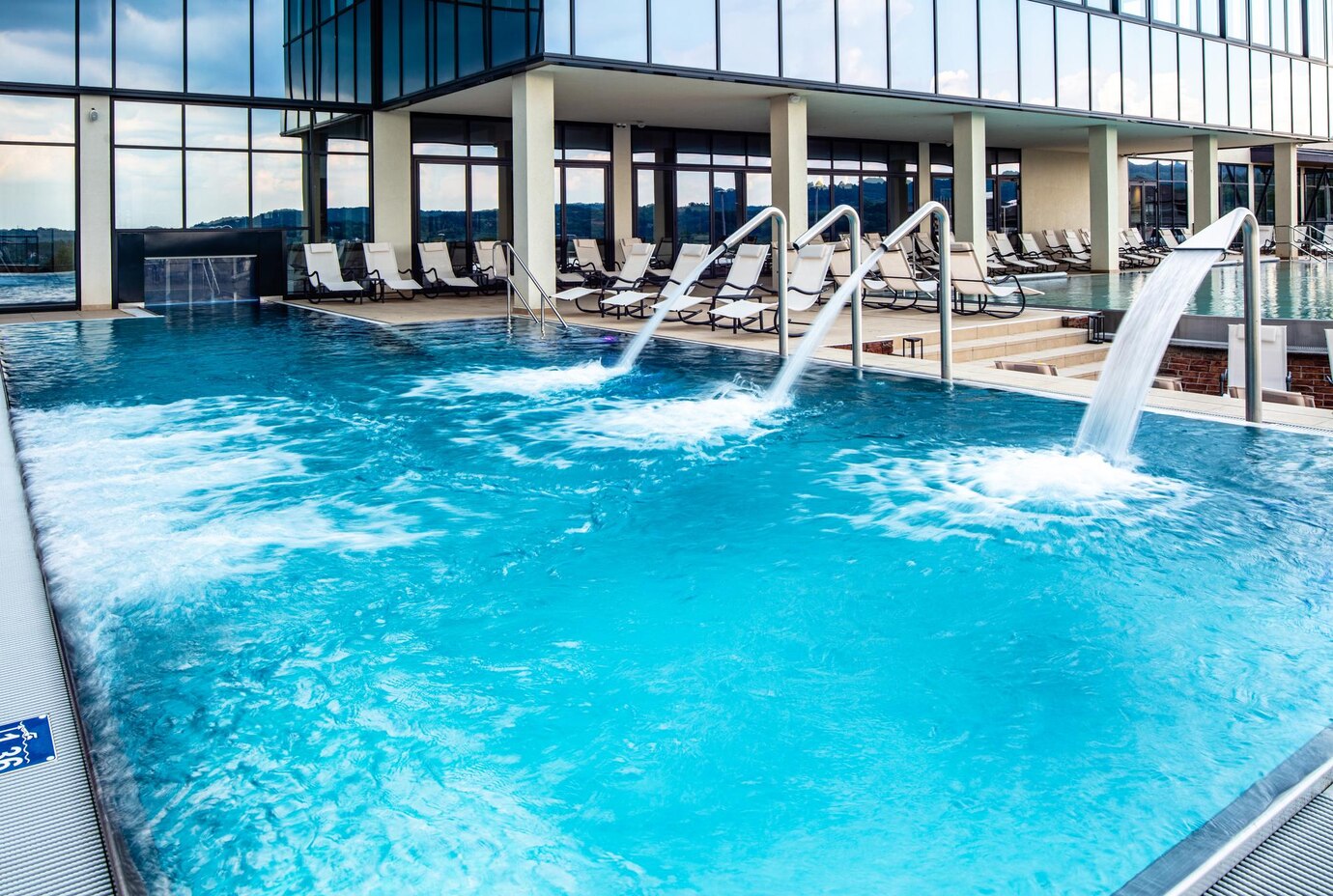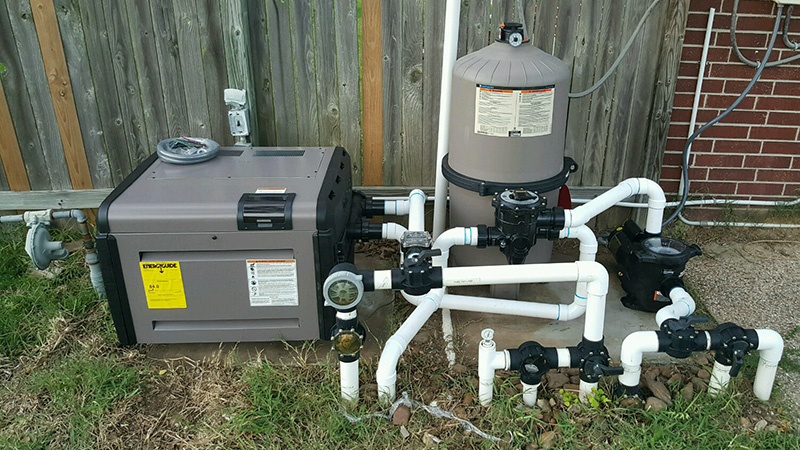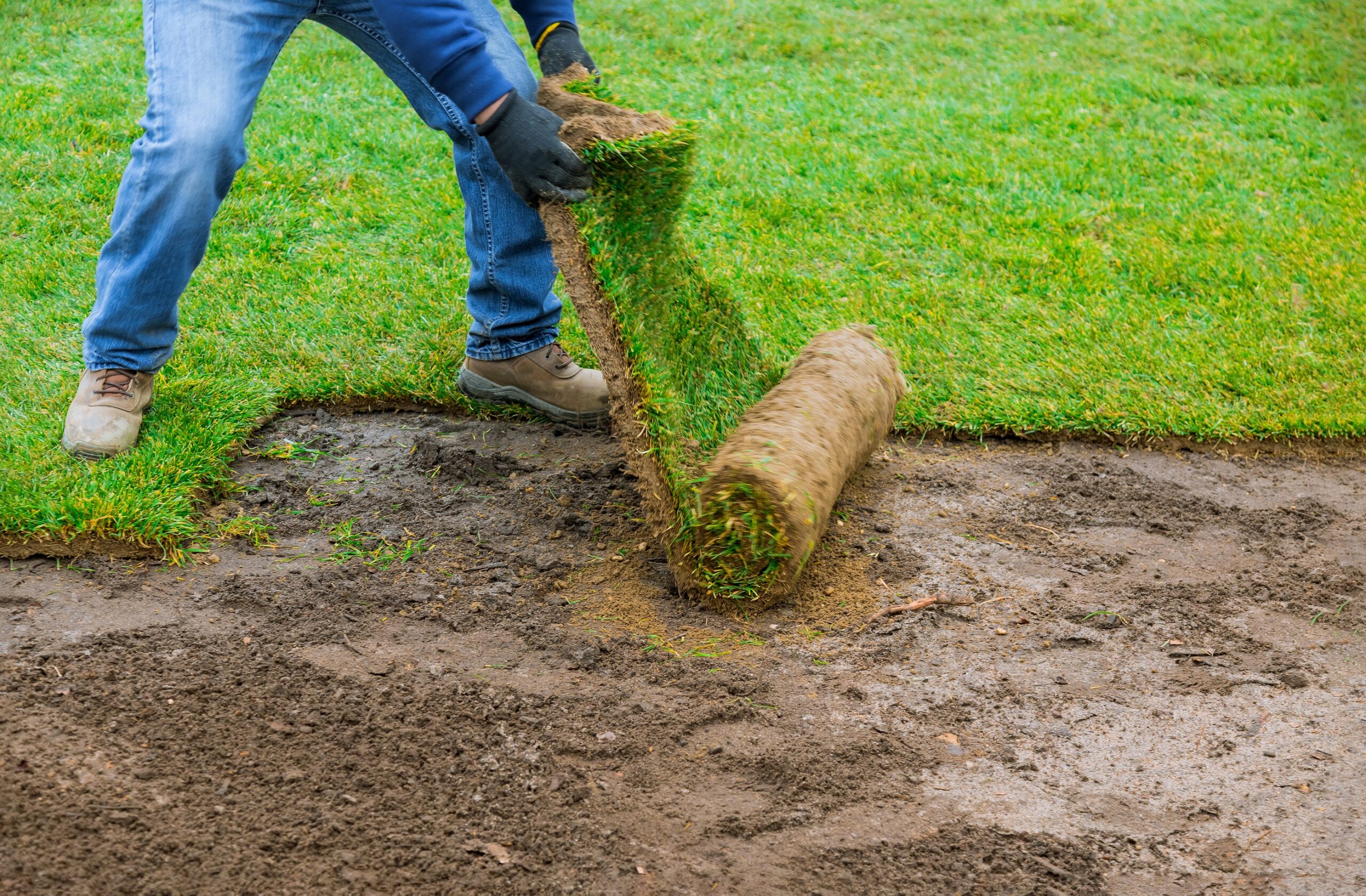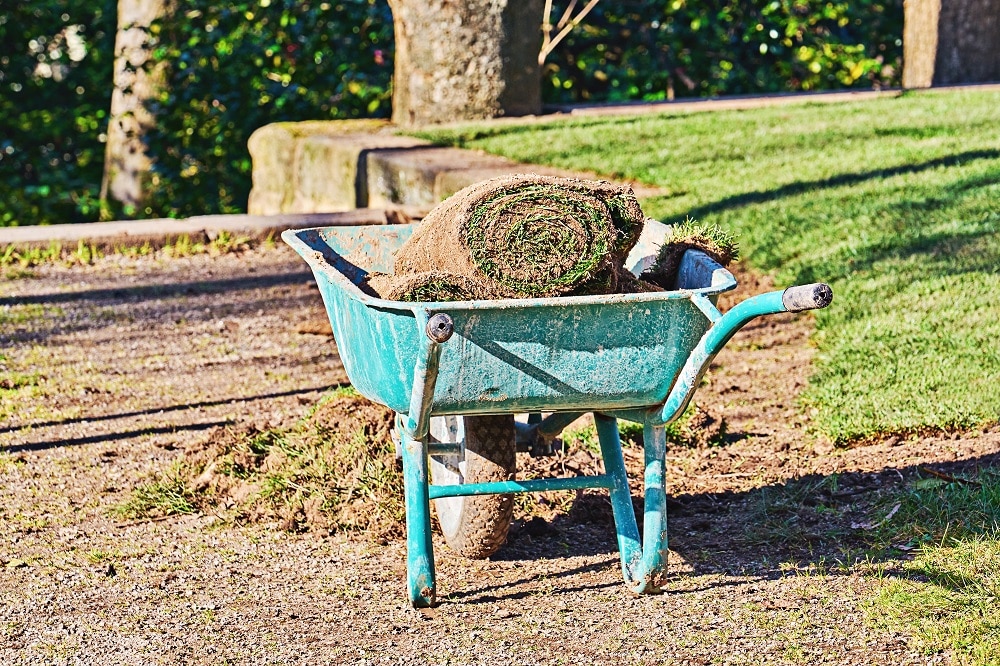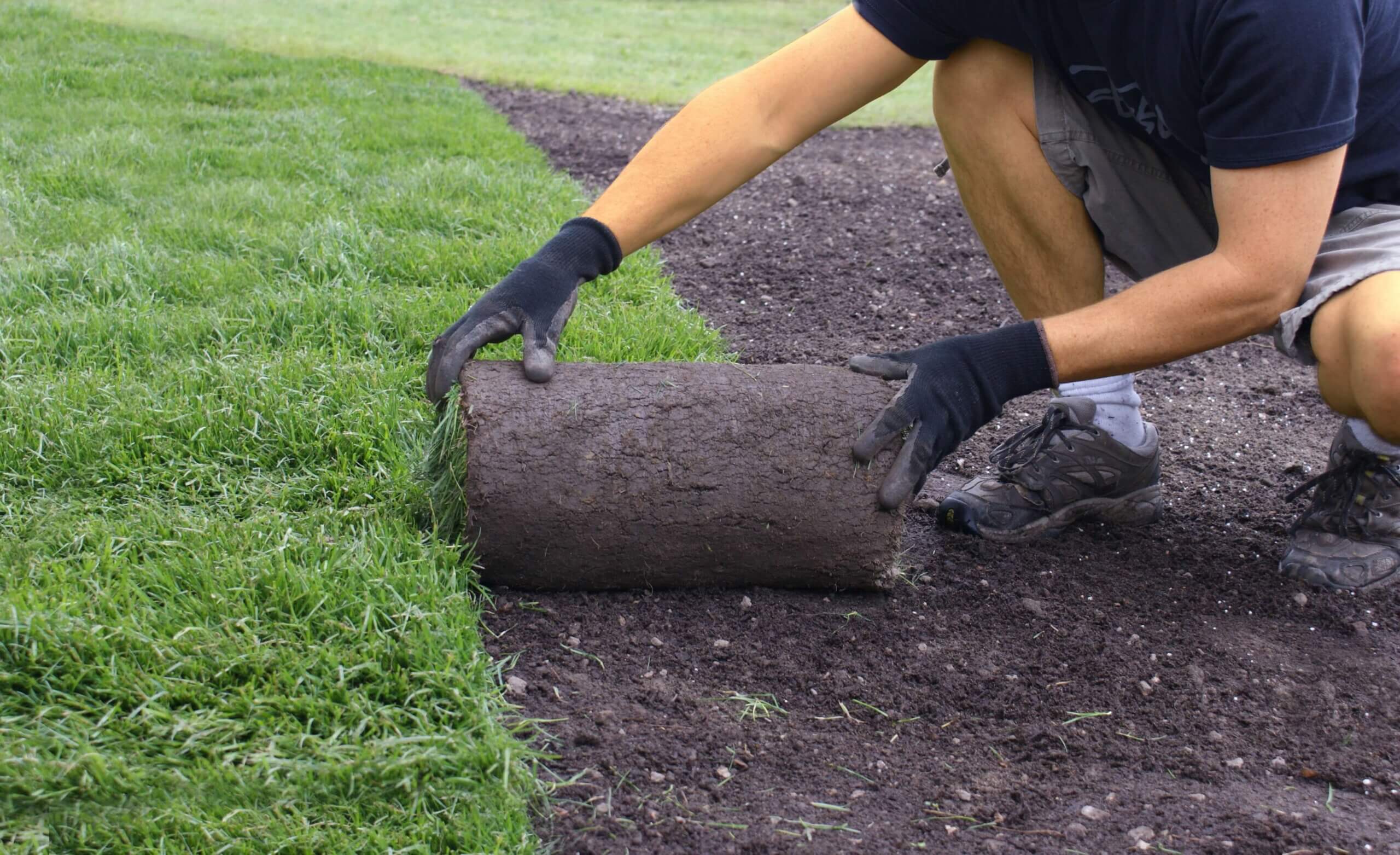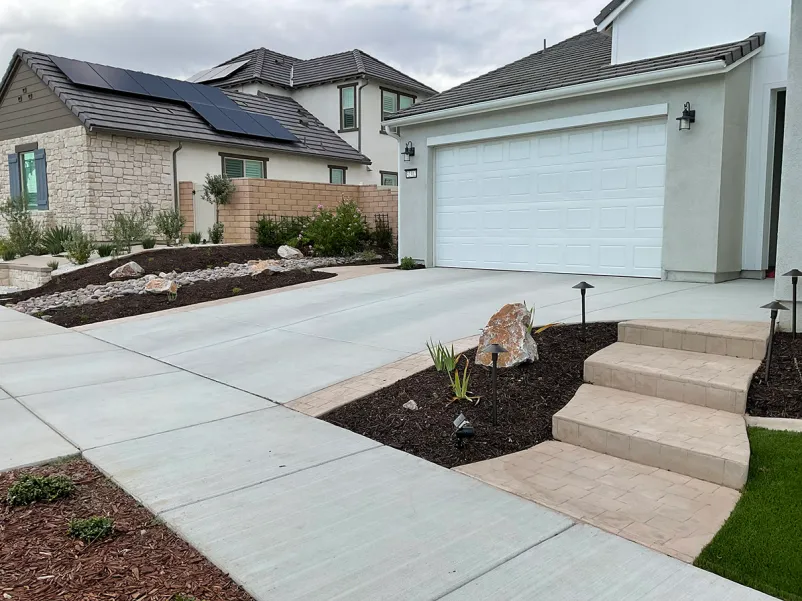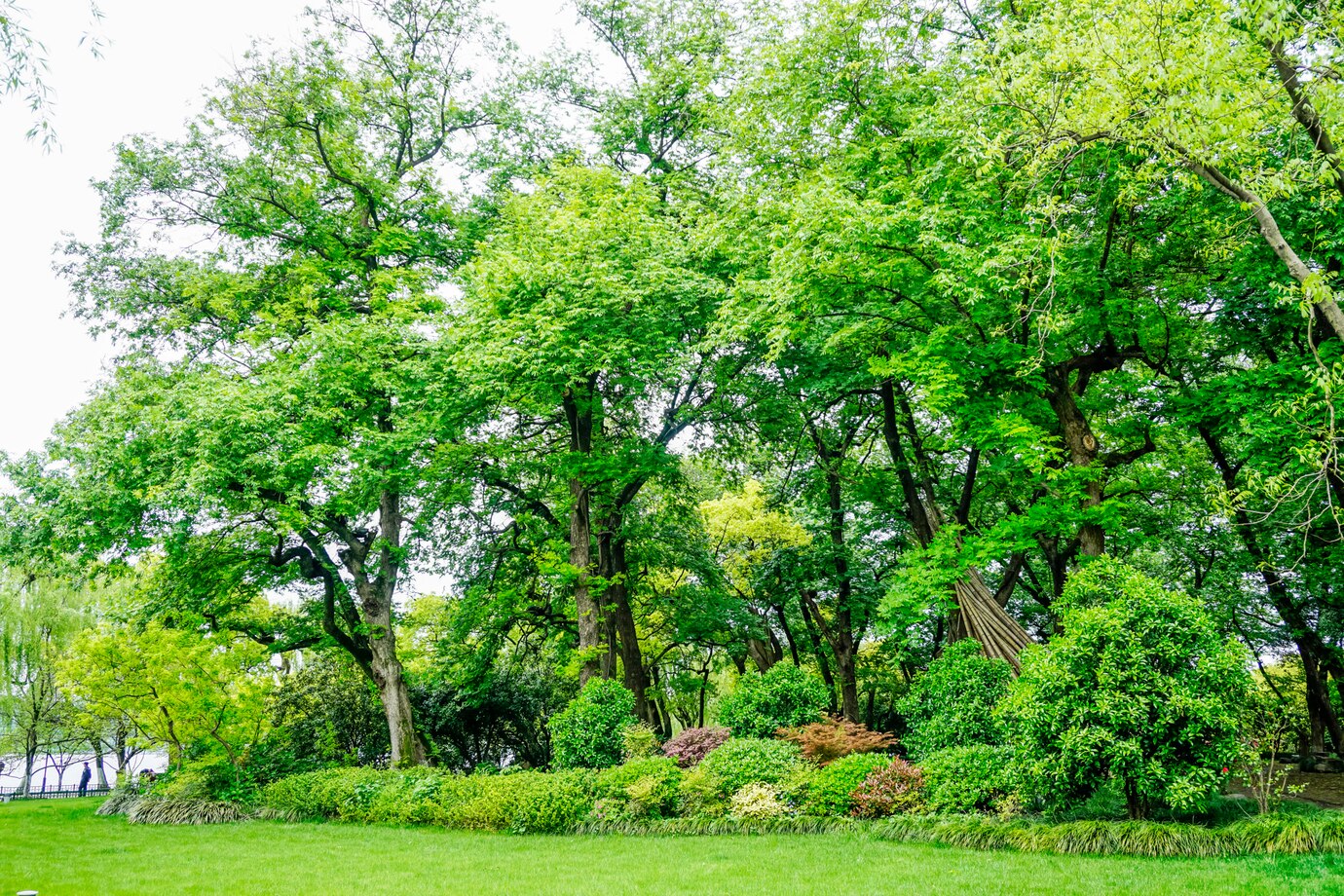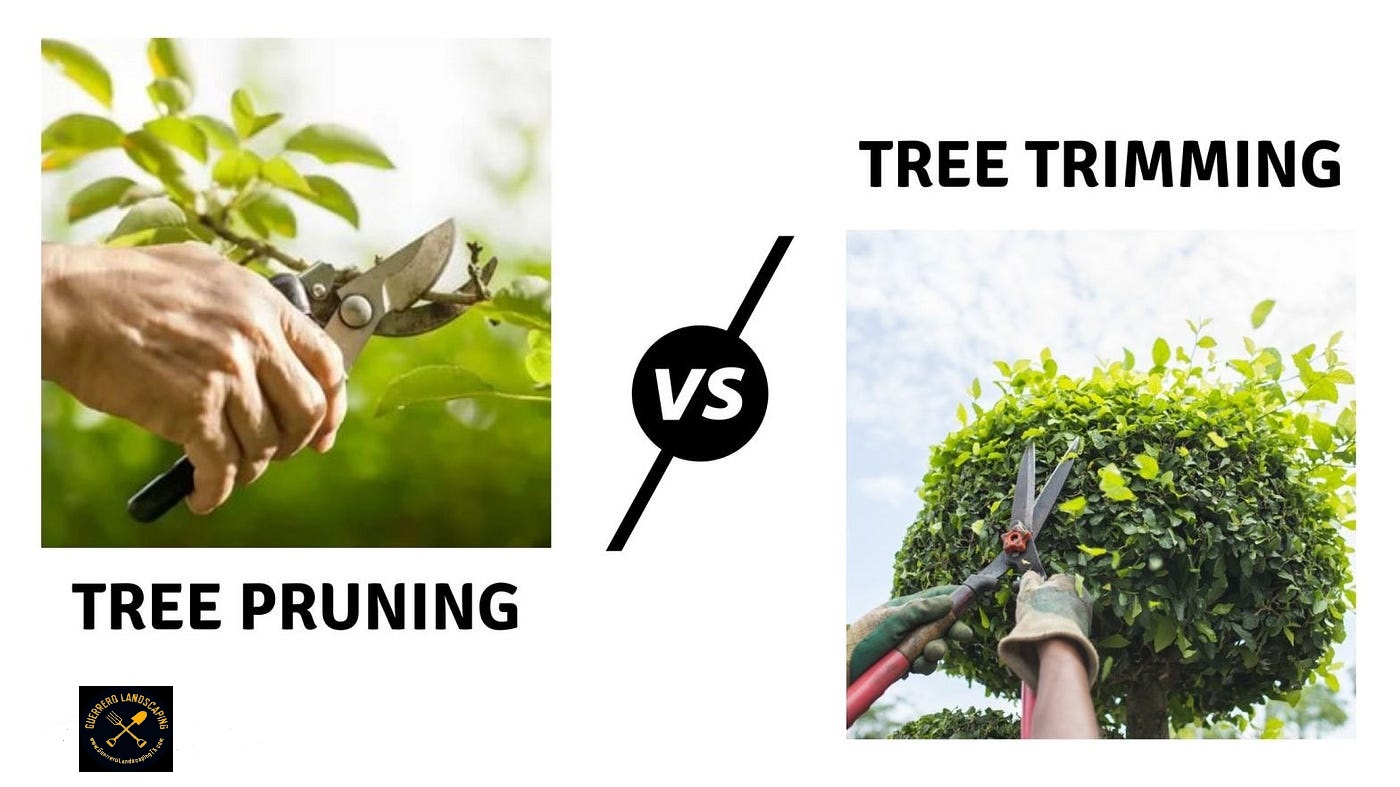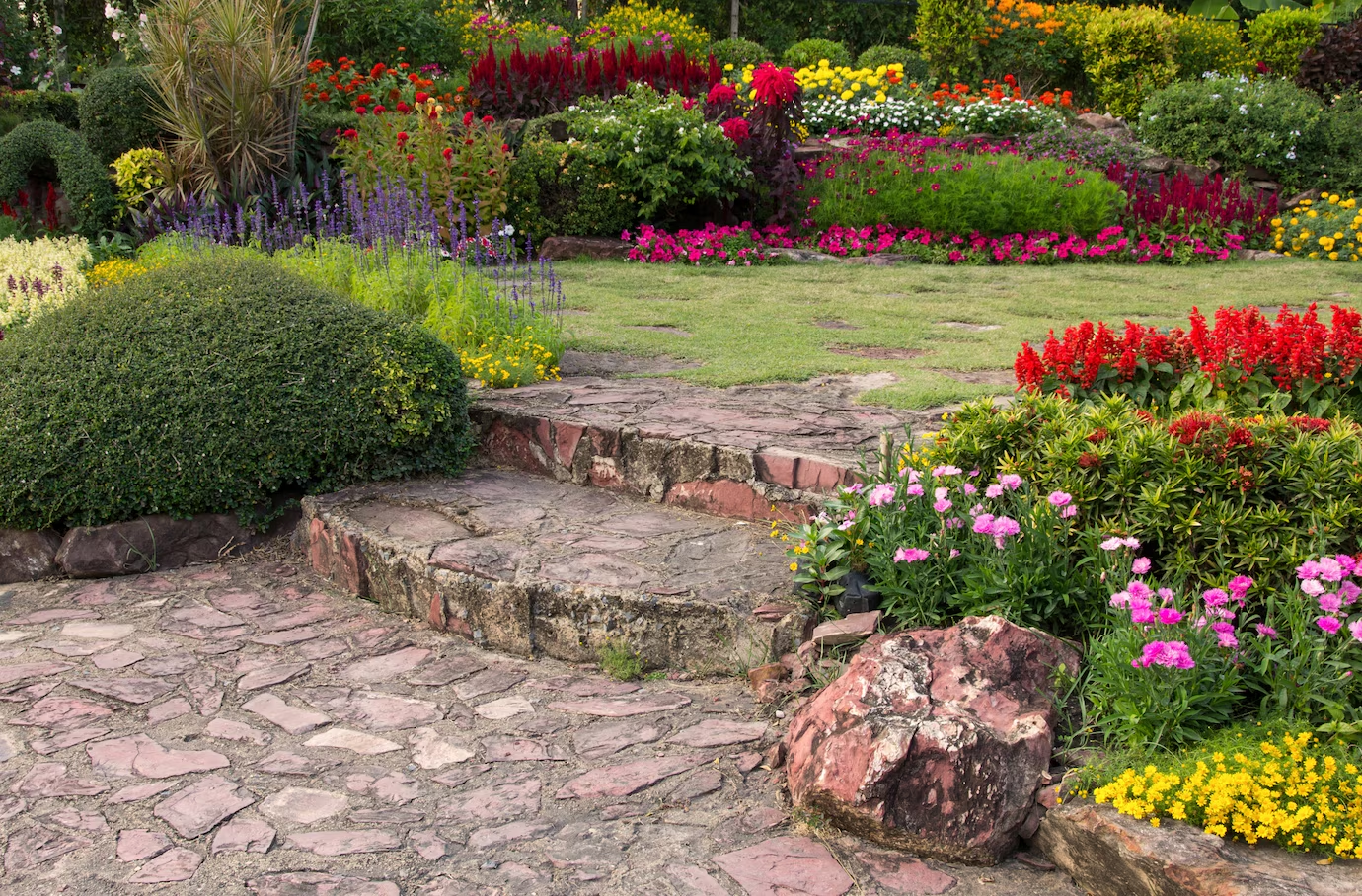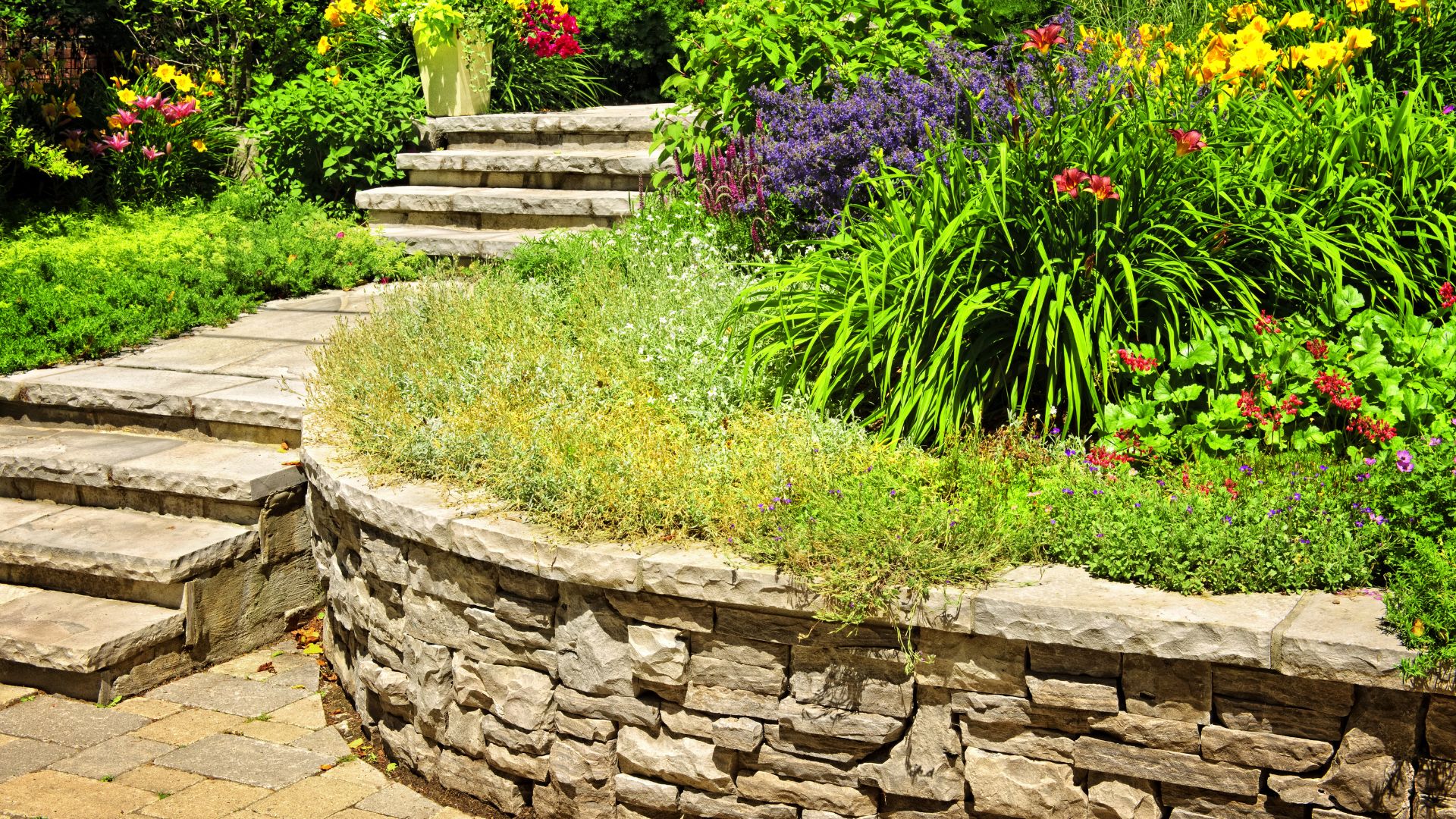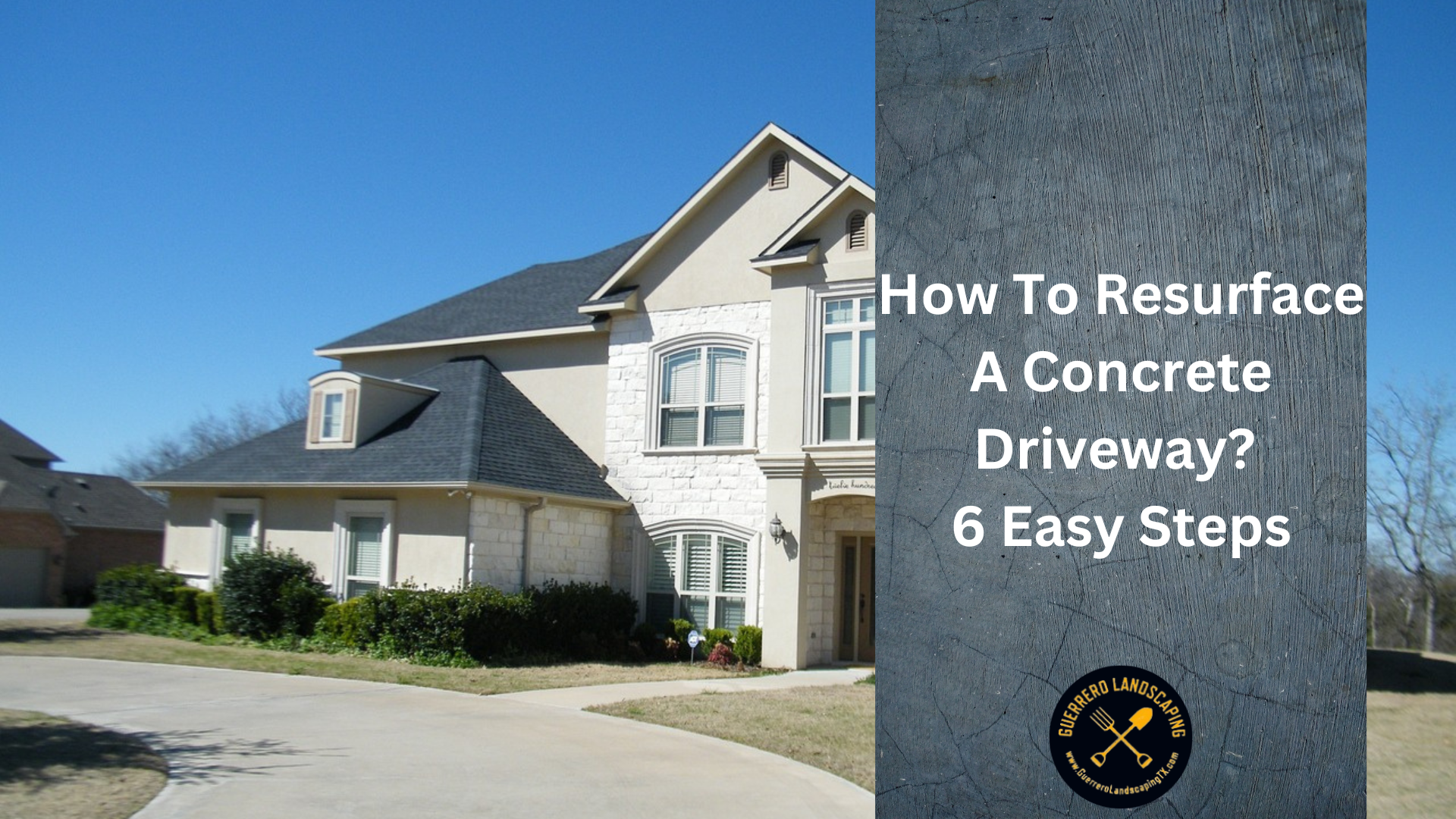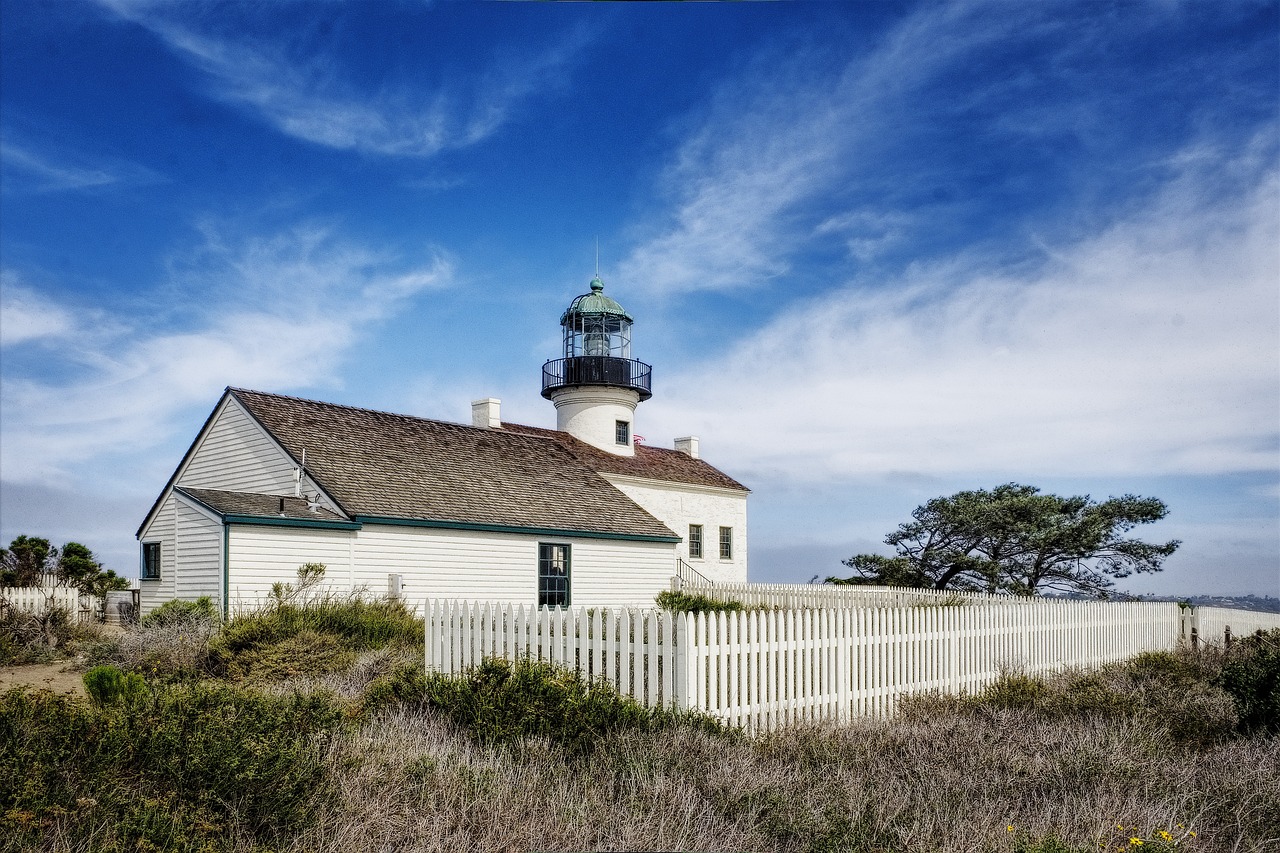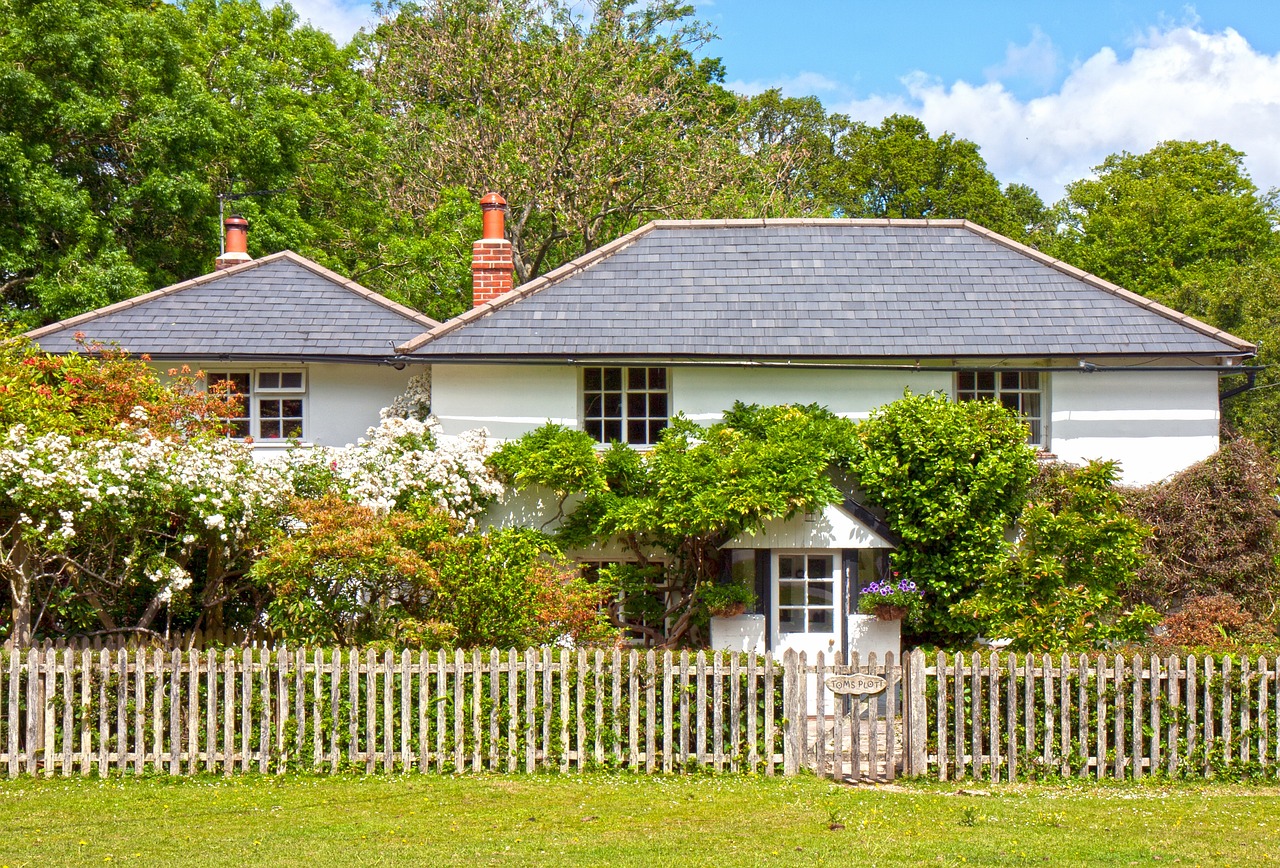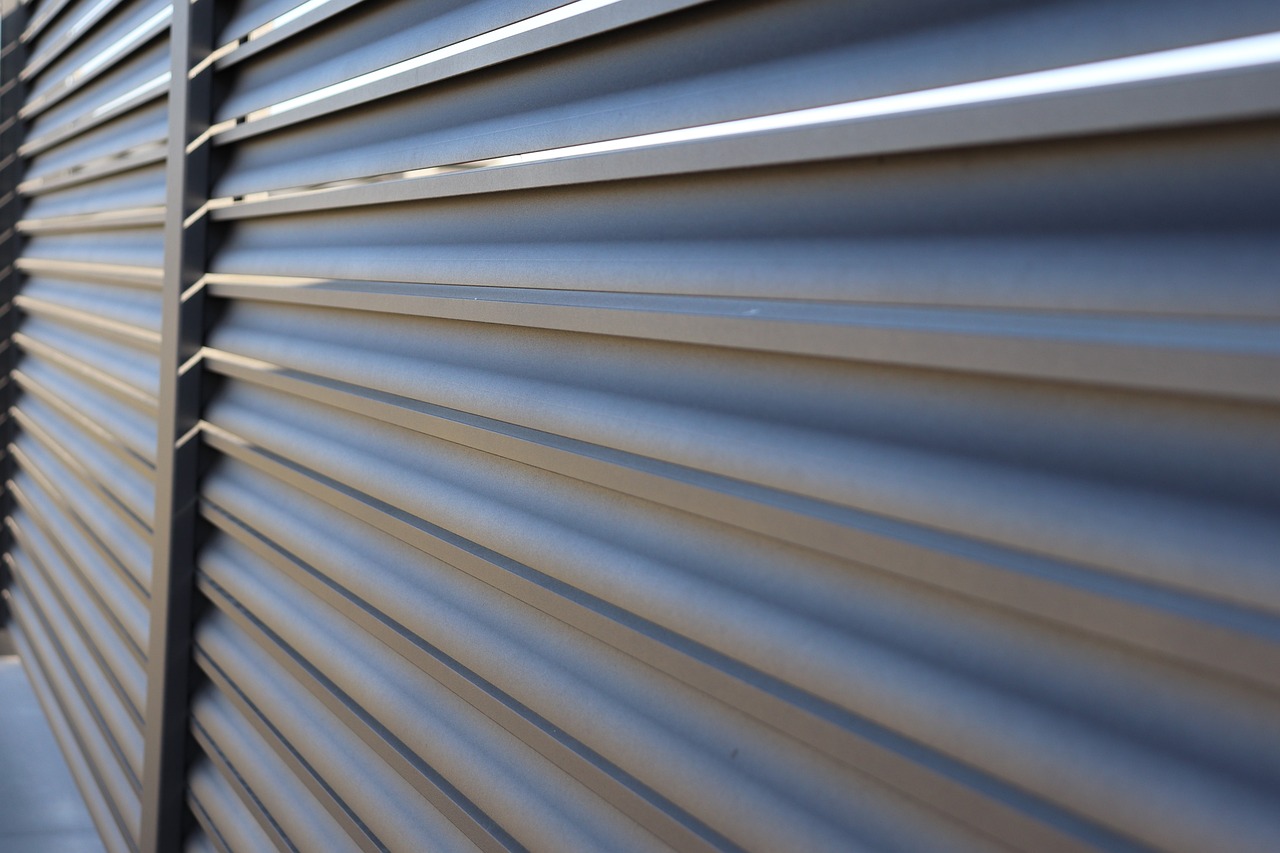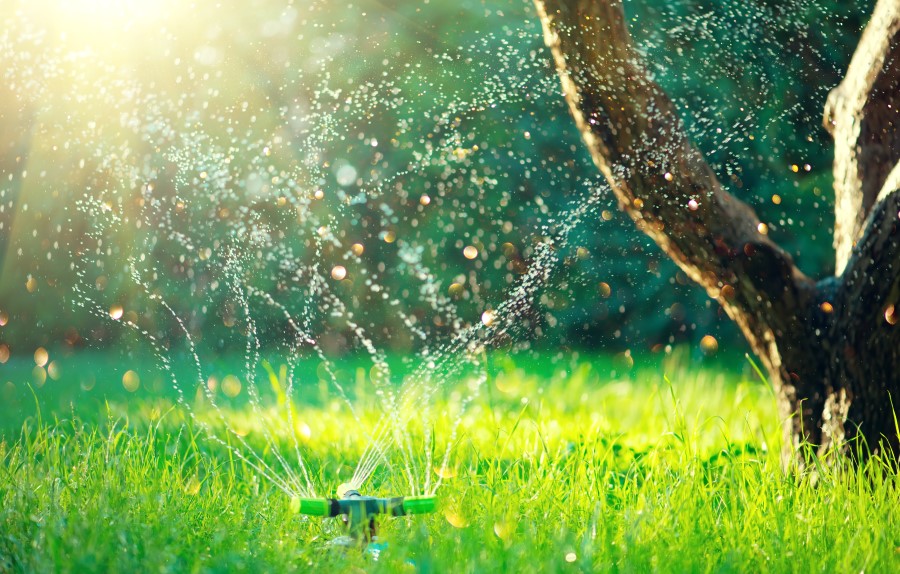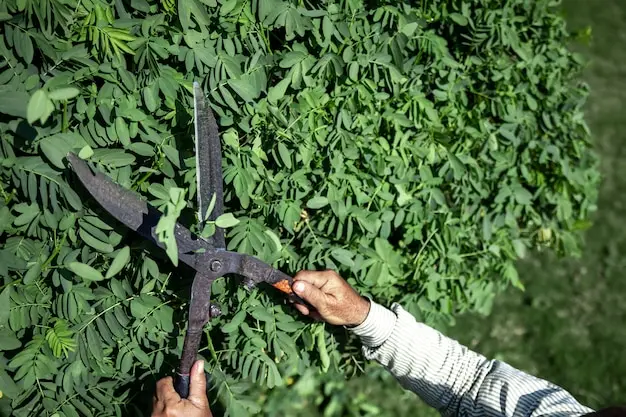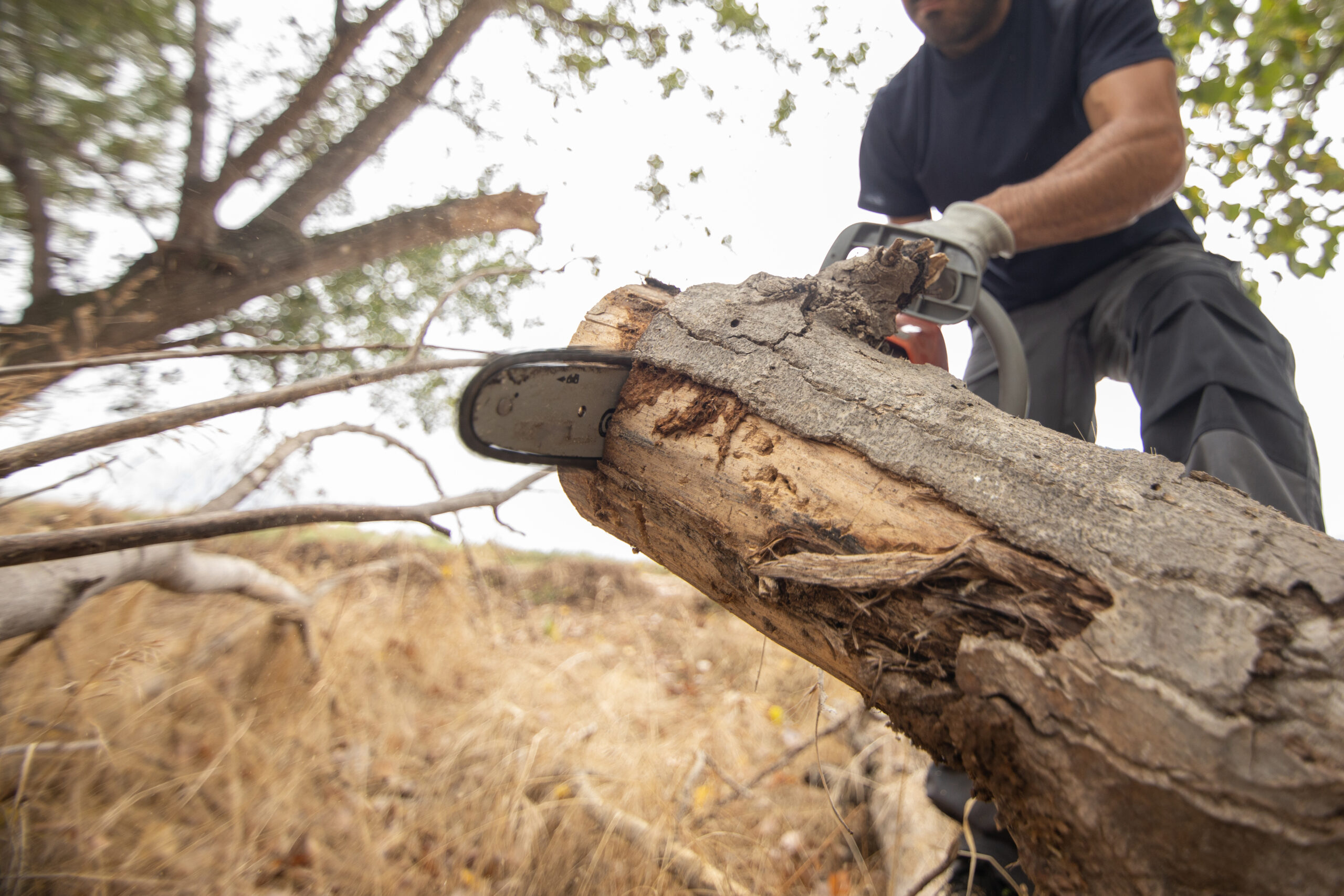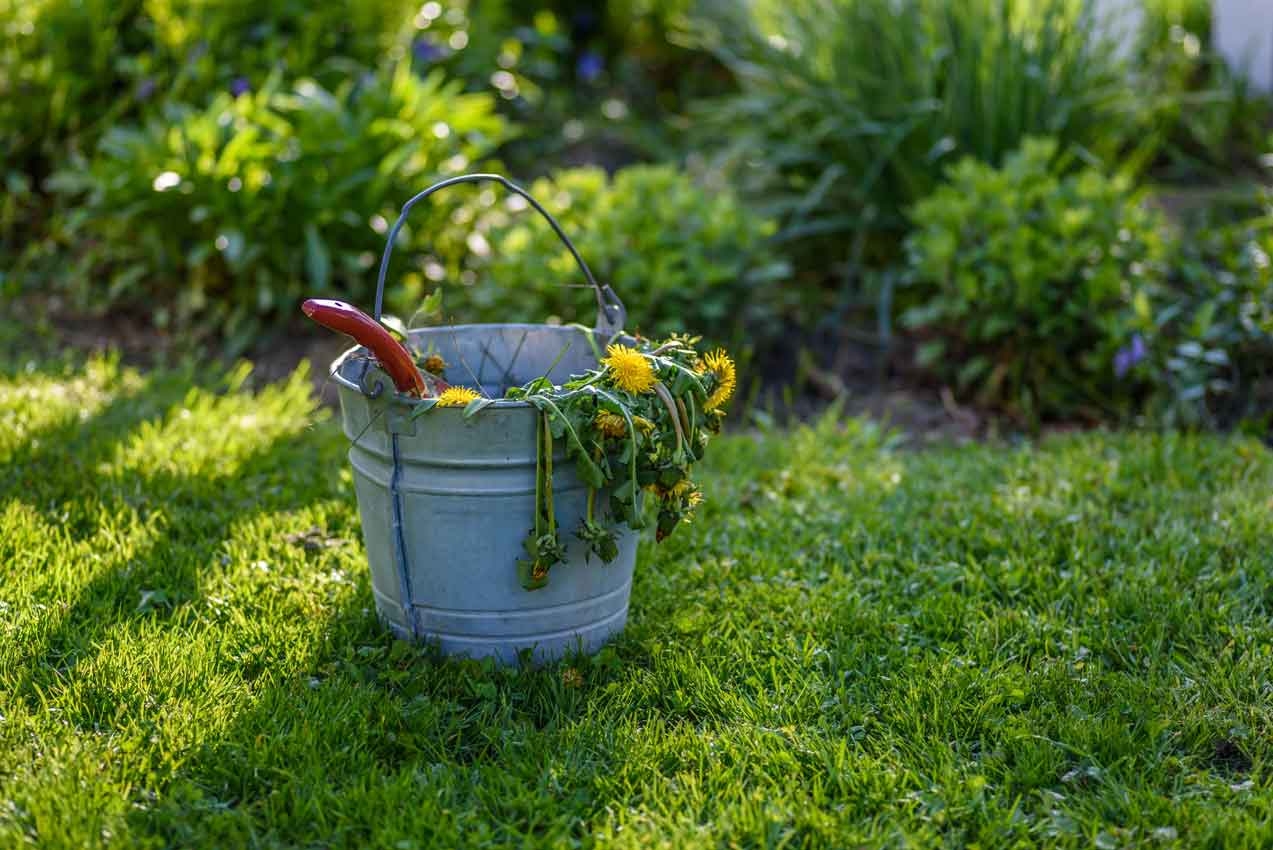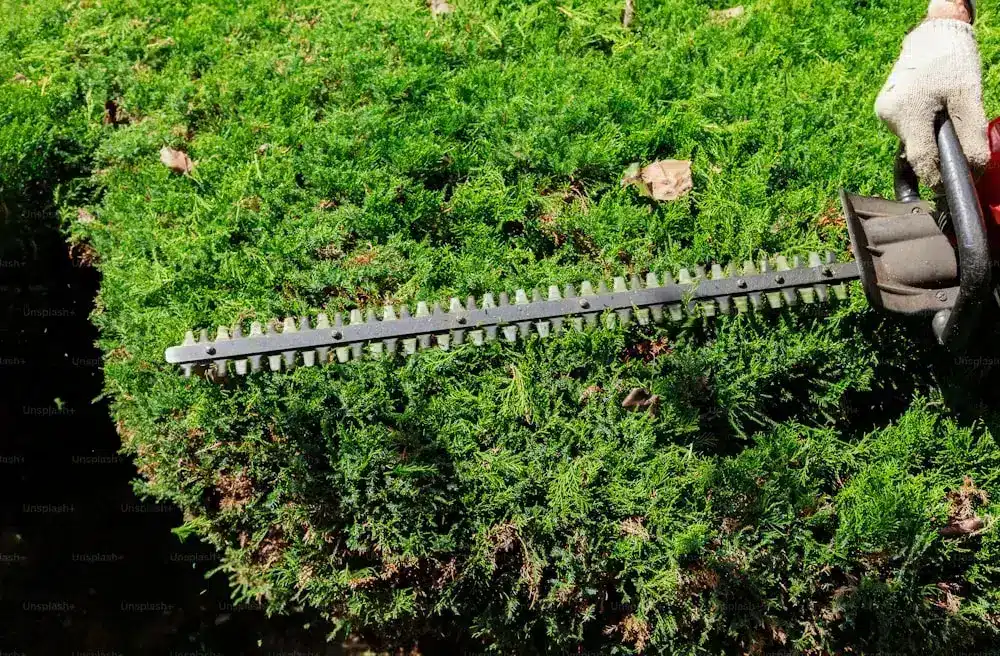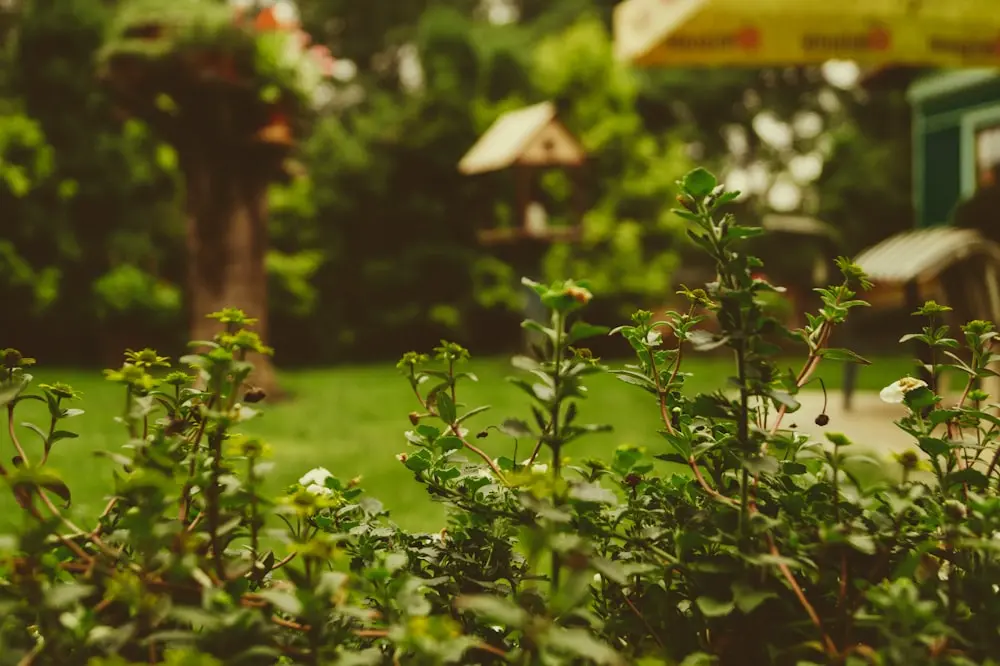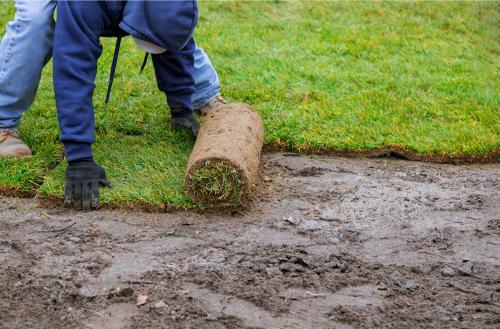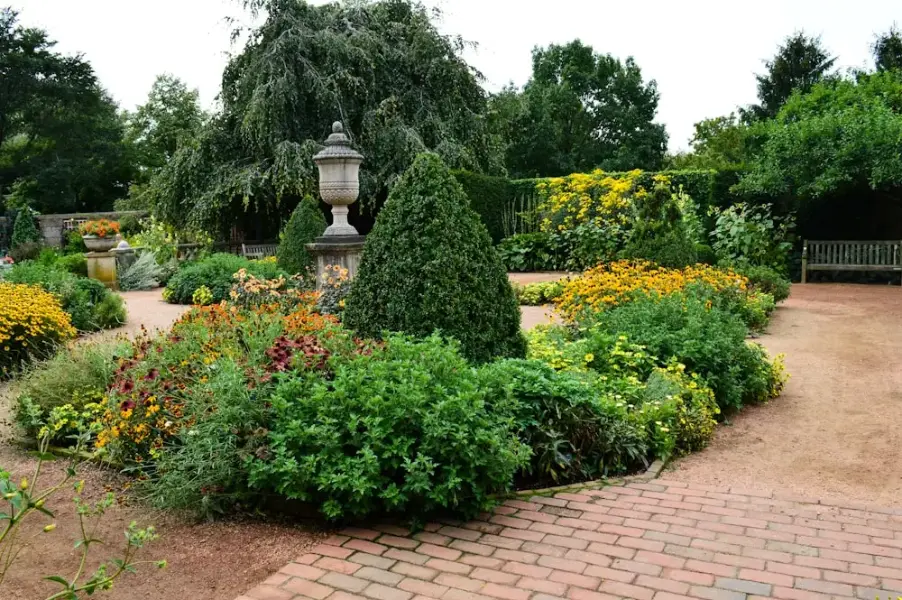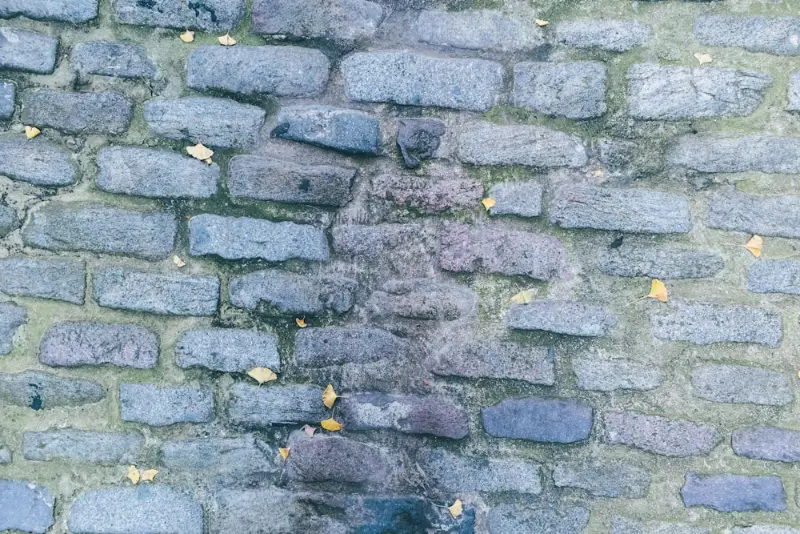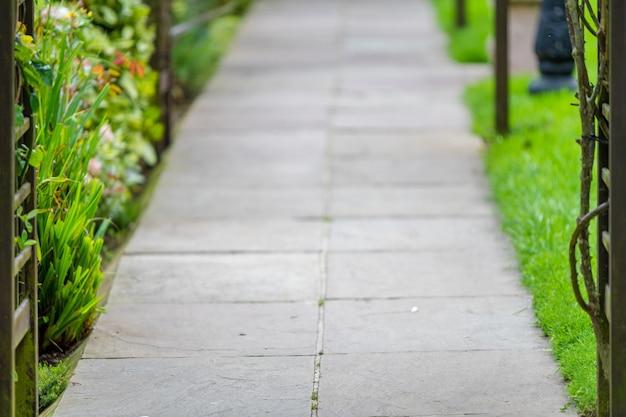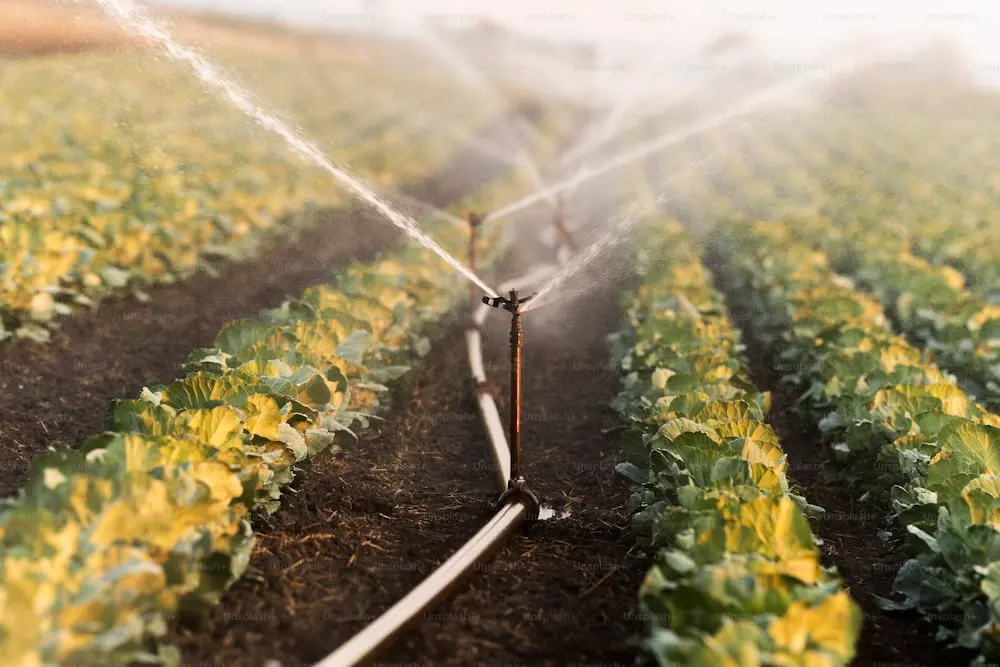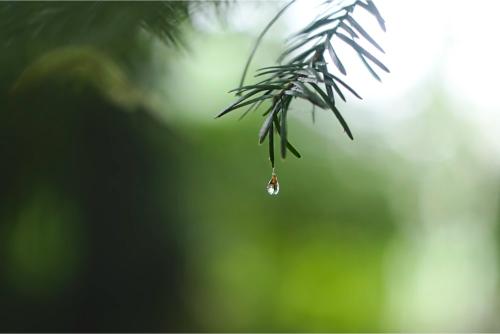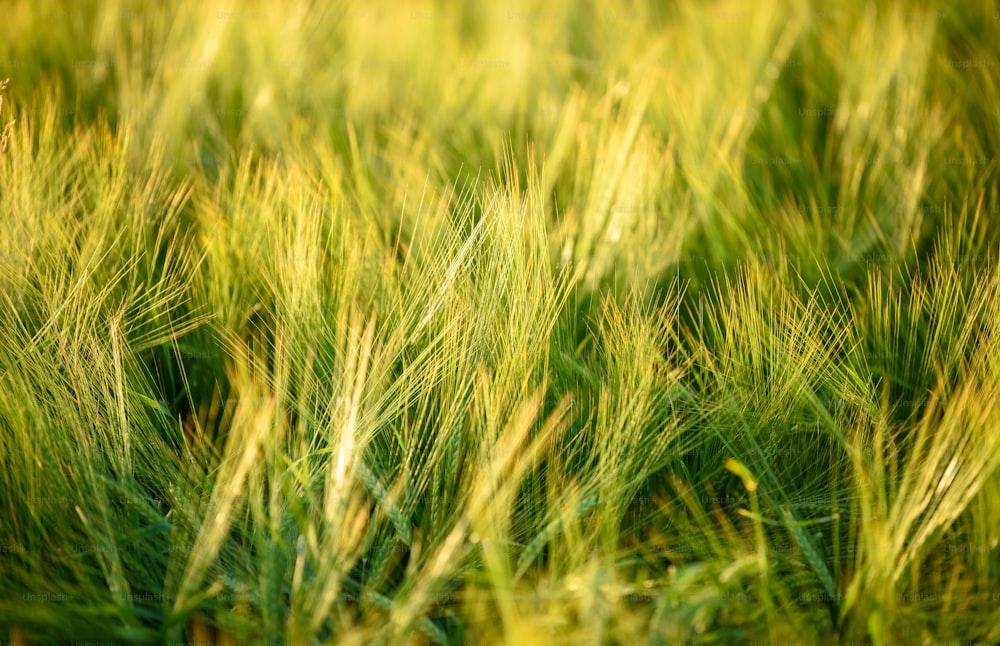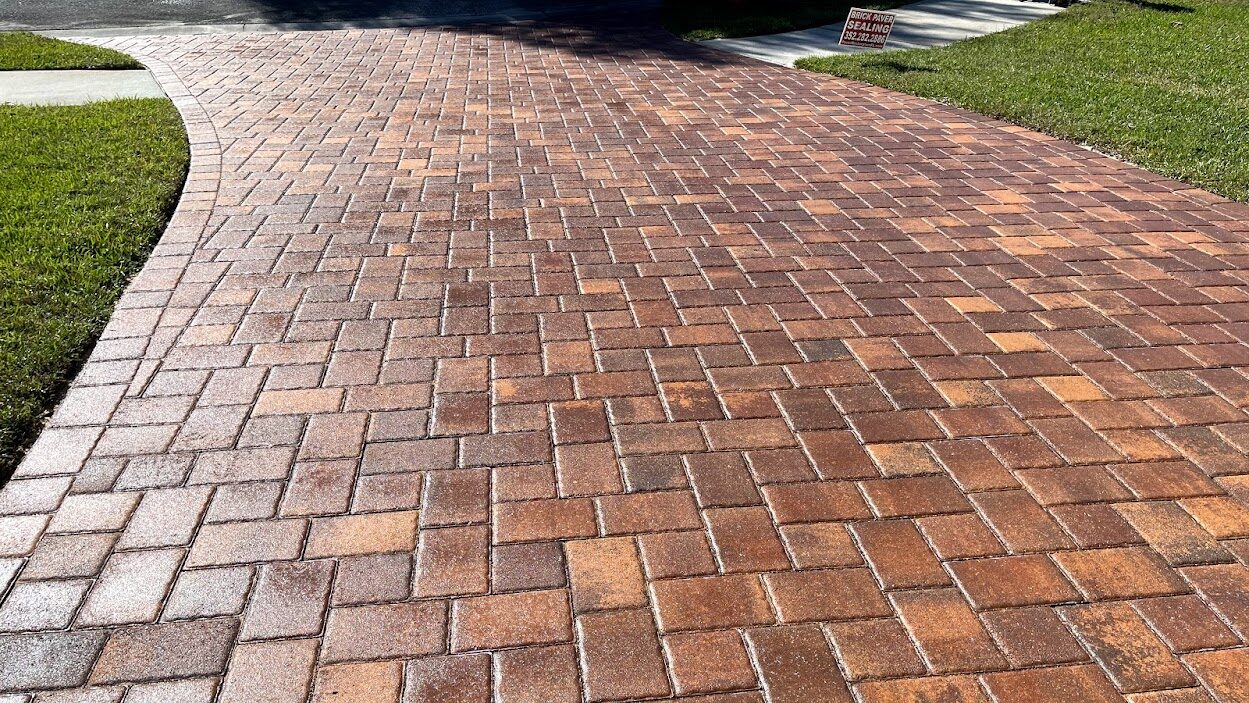
When Should Pavers Be Sealed?
Some manufacturers suggest waiting 1 year after paver installation before sealing them. This period allows the white, naturally occurring, dusty-looking build-up (efflorescence) to escape from the paving stones. Sealants should be reapplied every 3-5 years.
How Often Should Pavers Be Sealed?
Pavers should be resealed periodically to maintain the quality of the material for a longer period. However, consult with your landscape contractor as they know which sealer is best for subsequent applications.
If you want to seal pavements for your driveways, patio, or walkways in Dallas and are looking for reliable contractors, contact our professional. We would be happy to assist you with any paver-related questions.
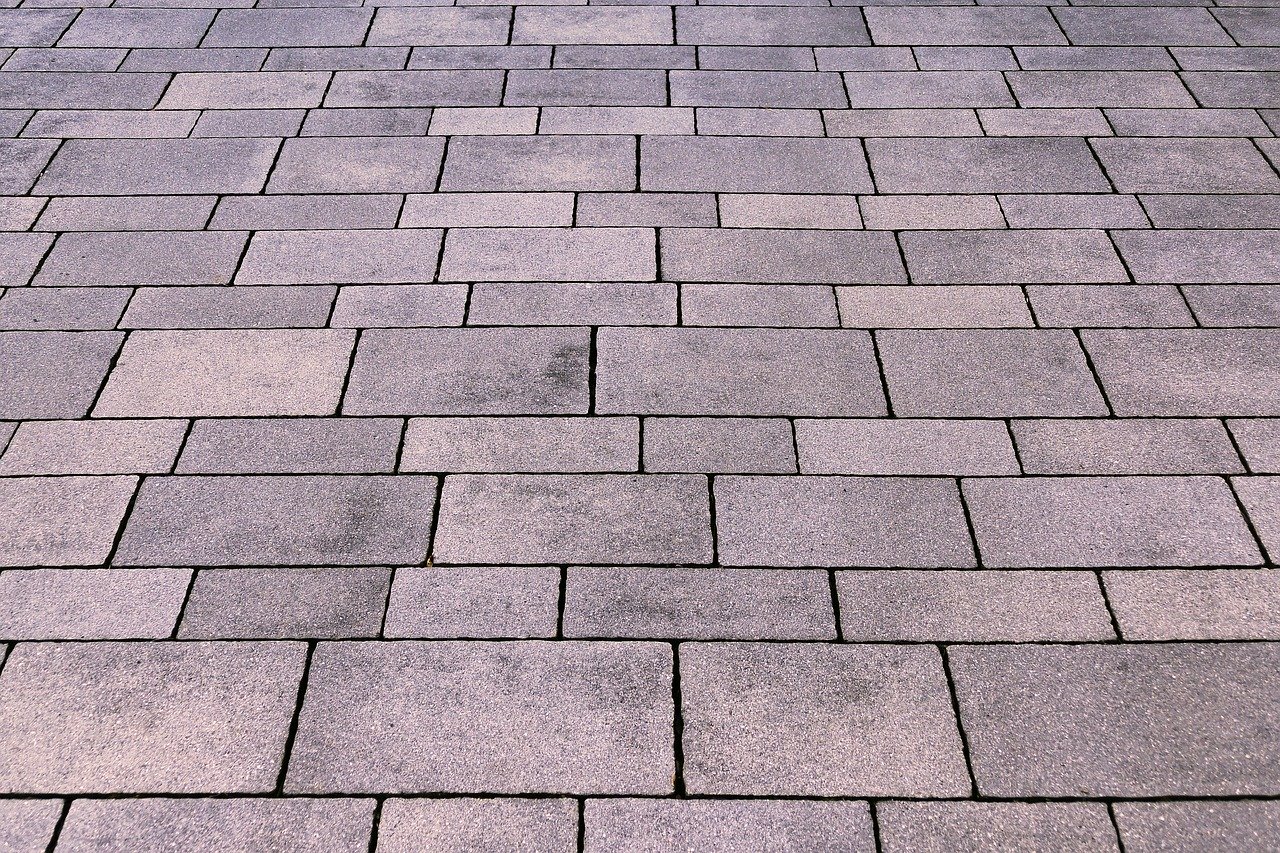
Sealing Considerations For Different Types Of Pavers
Brick Pavers are more absorbent than concrete. They are porous and require a low-gloss finish to maintain natural appeal while protecting against stains. Like brick pavers, concrete pavers are also porous. When sealing a concrete paver, apply a breathable sealer so that moisture can escape and provide protection against efflorescence.
Interlocking Pavers are made of stone or concrete with joints for optimal drainage and flexible design. Use a sealer that penetrates the joints to provide adequate protection from top to bottom.
Other Considerations
- Rushing the sealing project can have disastrous results. Clean the pavers well and let the sealants dry before any further operation.
- Dirt, debris, and mildew prevent the sealer from sticking to the paver surface, or in the worst case getting sealed to the paver surface. Make sure the pavers are fully cleaned before applying any sealant.
- Too much sealer locks the moisture and prevents the water vapors from escaping the surface. This causes peeling or a blushed white appearance.
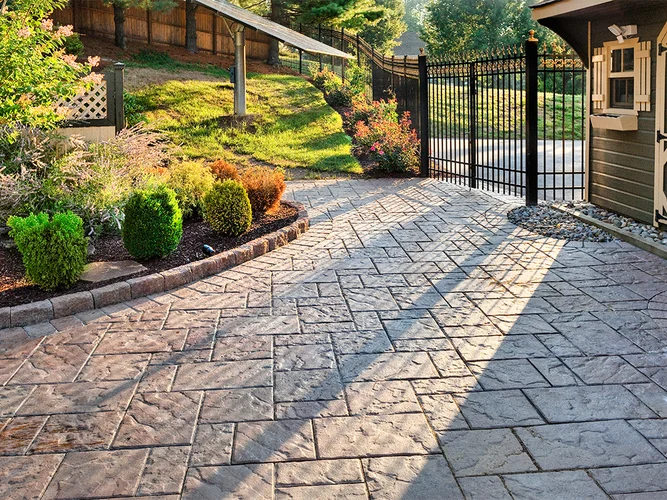
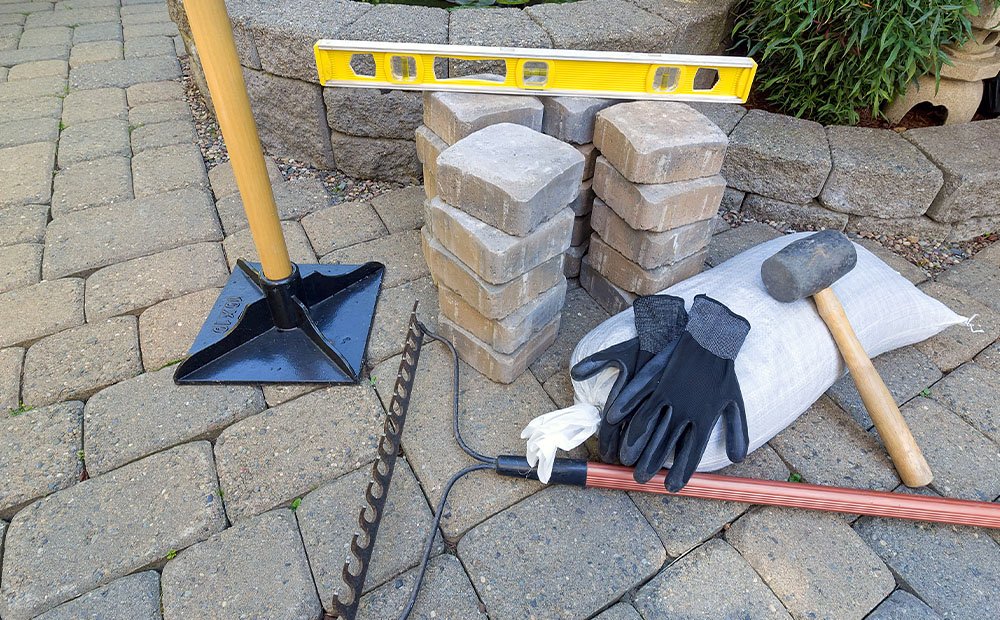
Tools Needed For Paver Sealing
Here are some must-have tools needed for the paver sealing process.
- Paver Sealers protect the surface from damage due to sun, stains, UV rays, and other wear and tear.
- A knife is used to scrap out weeds in older installations.
- Stiff Broom removes tough stains and debris.
- Foam roller is an alternative to spray to roll on the paver.
- Garden weed sprayer- for spraying on paver sealants.
The Sealing process- 5 Steps
The first step is to choose the right sealer for your paver. You can opt for a solvent-based or water-based sealer.
Solvent-based Sealers are ideal for high-traffic pavers and last up to 4-5 years. Since these penetrate deep into the pavers, you will need a gallon for 80-120 square feet. Water-based sealers provide a gloss finish to low-traffic outdoor areas. These are easy to work with as the low VOC percentage does not leave a chemical odor as solvent-based sealers. A gallon typically covers 100-150 square feet, as these sealers spread easily and cover more area.
While working with sealers and other chemicals, follow manufacturer’s guidelines, and take precautionary measures such as respirator gloves and hand gloves.
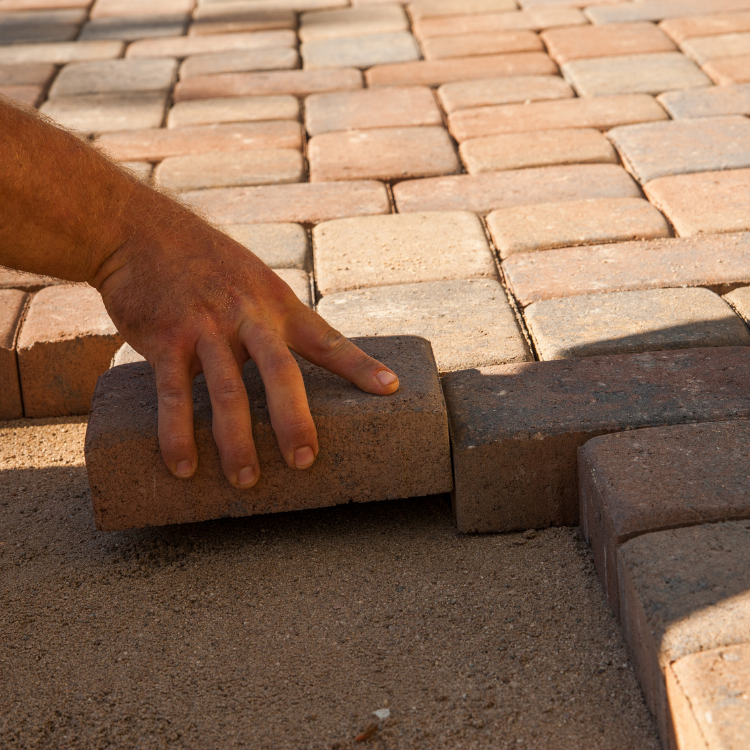

Influencing Factors for Sealant Choice
Different materials such as clay, natural stones, brick, and concrete require different materials for optimal function and longevity. For example, porous materials such as stones require a penetrating sealer to provide deep-down protection against moisture and stains, while non-porous materials work best with film-forming sealers.
Another factor is the location and intended use of your paver. Are they in a driveway or walkway? Is the weather conditions hard for pavers? These considerations help you choose the perfect sealer that provides resistance and durability against these conditions.Pro Tip: Consider factors like UV protection, abrasion resistance, anti-slip properties, and water repellency before choosing a suitable sealant for your pavers.
Level any Settled or Shifted Pavers.
This is not a required step for newly installed sealers. However, in older installations, it’s better to fix any dips in the surface to avoid the pooling of sealant liquids.
Follow the steps below to level the shifted pavers:
- Wet the joint sand with a hose or pressure washer on a low setting.
- Remove as much sand as you can with a putty knife.
- Lose the first paver with a screwdriver. This will help you remove the remaining pavers smoothly.
- Level the ground with sand or ¼th stone chips.
- Place the pavers in a leveled position.
- Sweep in the polymeric sand.
- Clean the entire surface and let the sand dry completely.
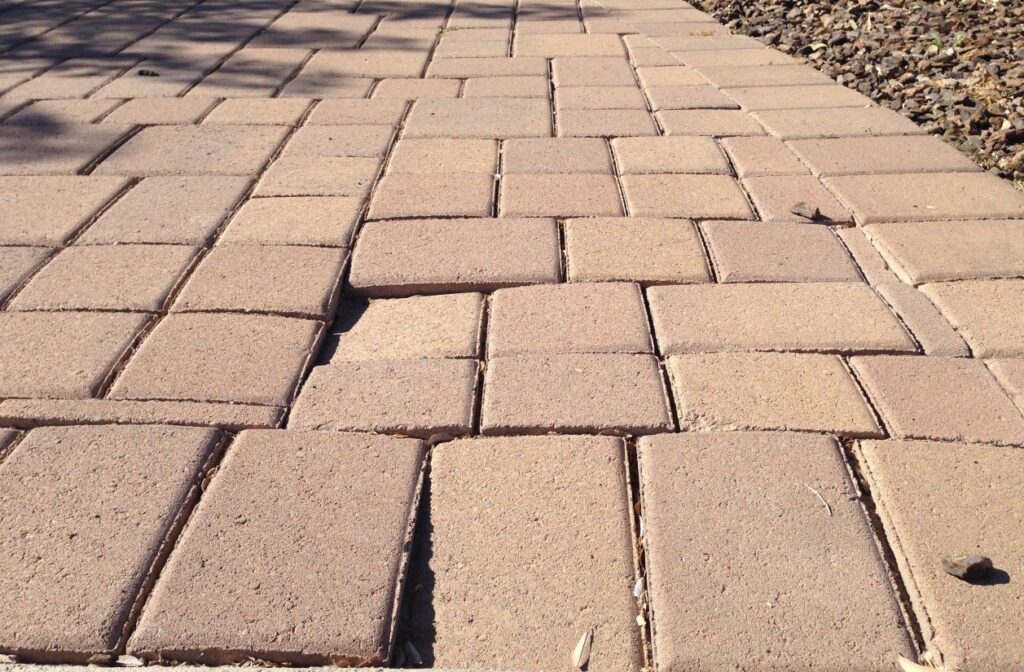
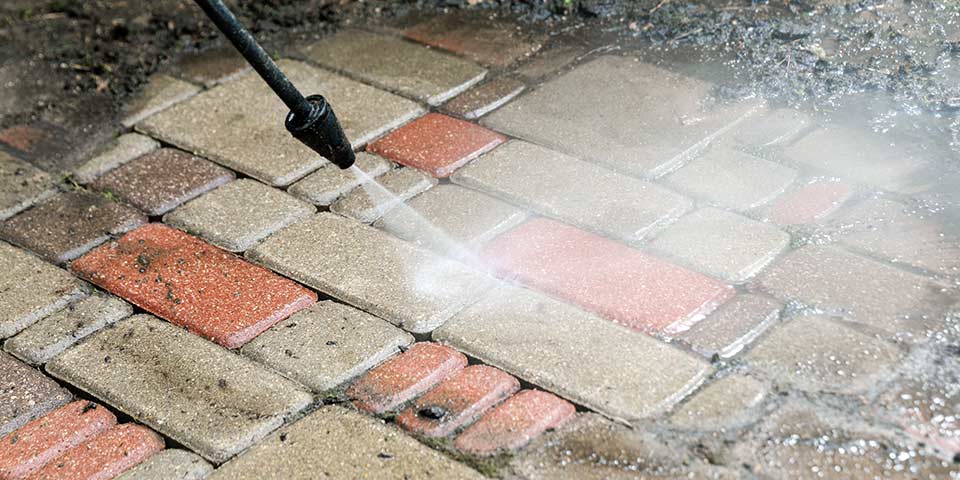
Clean the Pavers
Pavers must be cleaned before applying any sealer. Otherwise, dirt or debris will remain attached and faint the paver surface. Remove the weeds and moss with a narrow-bladed tool such as a block paving knife. Add mild detergent to a liter of water to make a cleaning solution.
Use a pressure washer, hose, or stiff broom to remove dust and debris that is accumulated on the pavers. Tough stains such as grease and oils are removed with special paver cleaners. Let the pavers dry for at least 24 hours before applying any sealer.
Apply the Sealer
Apply the sealer in good, dry weather, after reading the manufacturer’s guidelines. You can have a patch test to ensure the sealer meets the paver requirements. You can use a garden weed sprayer, foam roller, or short pile roller to apply the sealer. Avoid overspraying as the sealers once applied cannot be washed off again. Use a metal sheet around structures or edges you don’t want to spray on.
Leave the Paver Surface to Dry
After applying the sealer, wait till 24 hours so that the sealer gets dry completely. In case of rushing or inadequate drying, the sealer may peel off as it is not bonded properly to the paver surface.
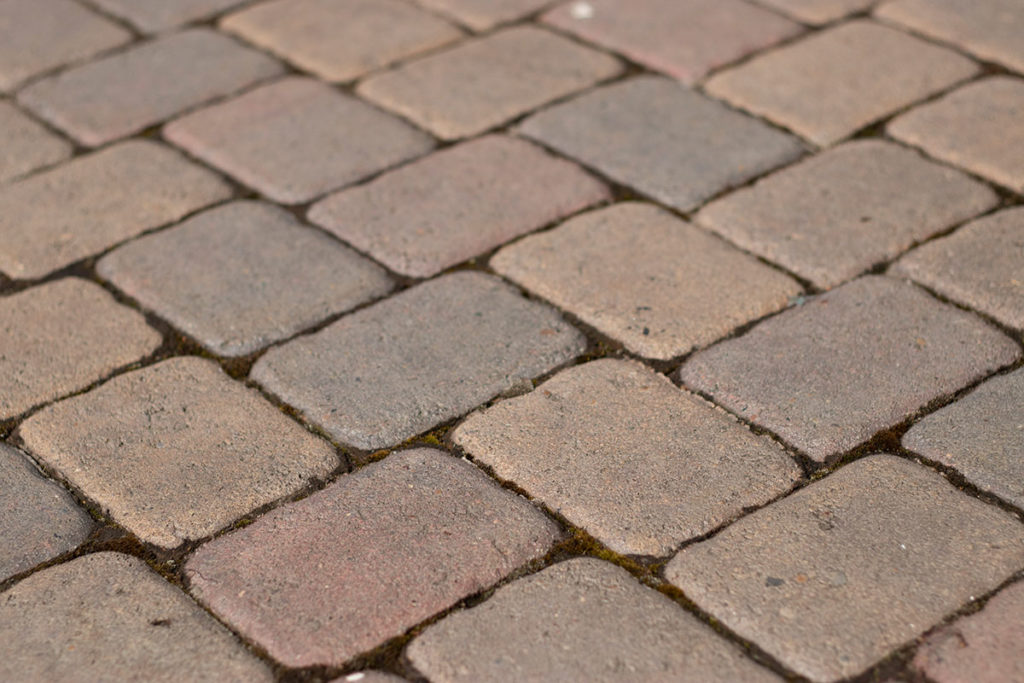
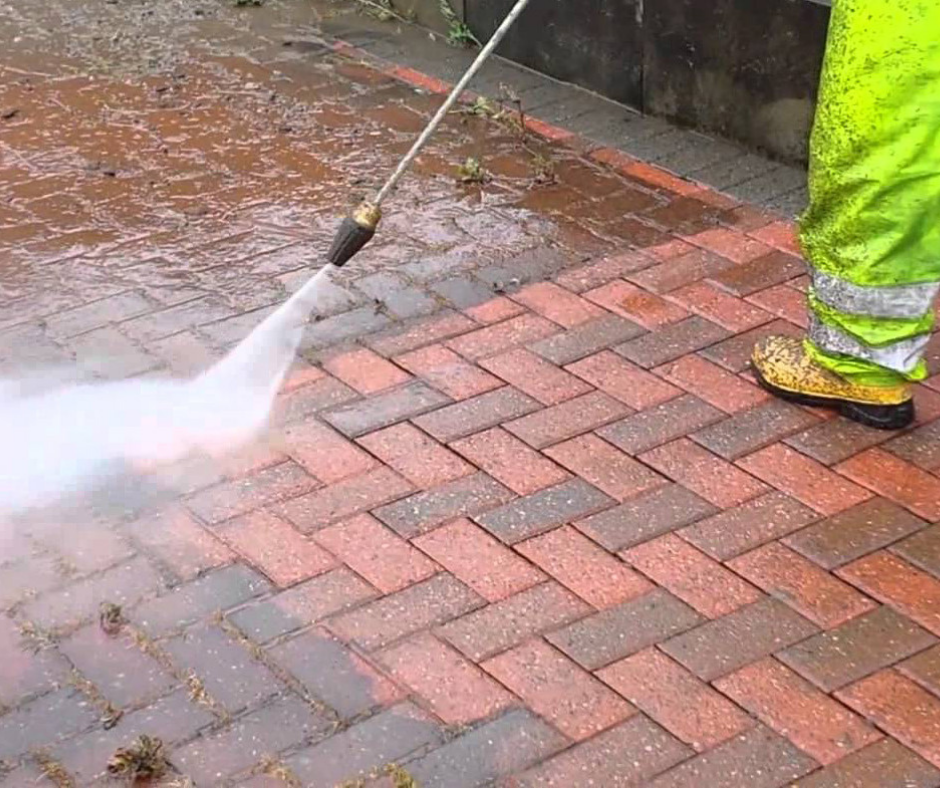
Essential Tips For Paver Maintenance
Proper maintenance can minimize the wear and tear of the paver and increase its aesthetic appeal. Regular cleaning keeps the dirt, debris, and leaves away from the pavers that accumulate over time. Dirt and fallen leaves stick between the paver joints and affect the stability structure.
If you notice any cracks or loose pieces, consider repair products or consultation with experts like Guerrero Landscaping. Our experts address the issue timely and prevent further deterioration.
Apply polymeric joint sand to prevent weed growth between pavers. The sand acts as a barrier and improves the stability and strength of the pavement. Based on specific conditions, you can reapply joint sand every 1-2 years or as recommended by professionals you have consulted.
Get Long-lasting Paver Sealing Results With Guerrero Landscaping
You may invest time and money for a paver or driveway installation. However, improper maintenance, exposure to hard, dry weather, UV rays, and high foot traffic can damage the surface greatly. Unsealed pavers are susceptible to damage by stains, dirt, or oil spills.
All these hazards are easily prevented by sealing the pavers. The sealers act as barriers to prevent weed growth between damage. In turn. protects against erosion, cracks, and freeze-thaw damage.
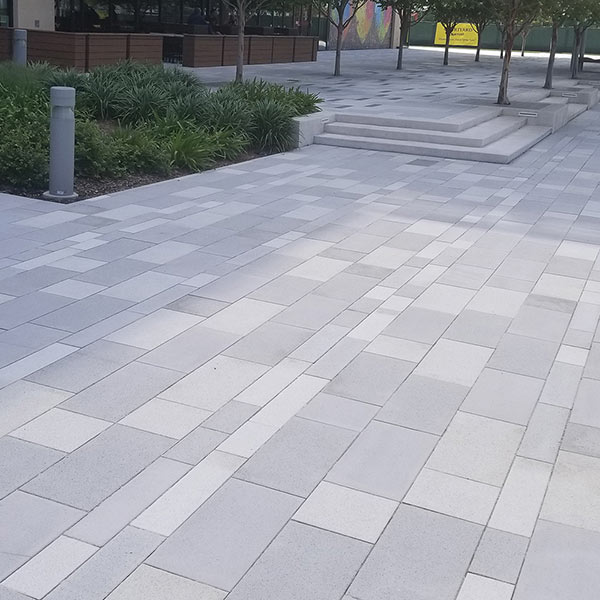
Conclusion
These results are obtained only if you choose the right sealer for your pavement and get it sealed by professional sealers. For Dallas and nearby regions, Guerrero Landscaping professionals are providing expert pavement sealing with reliable results. Our experts bring you peace of mind while perfectly handling all your landscape tasks.
To learn more about paver sealing service, contact our experts today. We respond within 15 minutes. Try Now!



